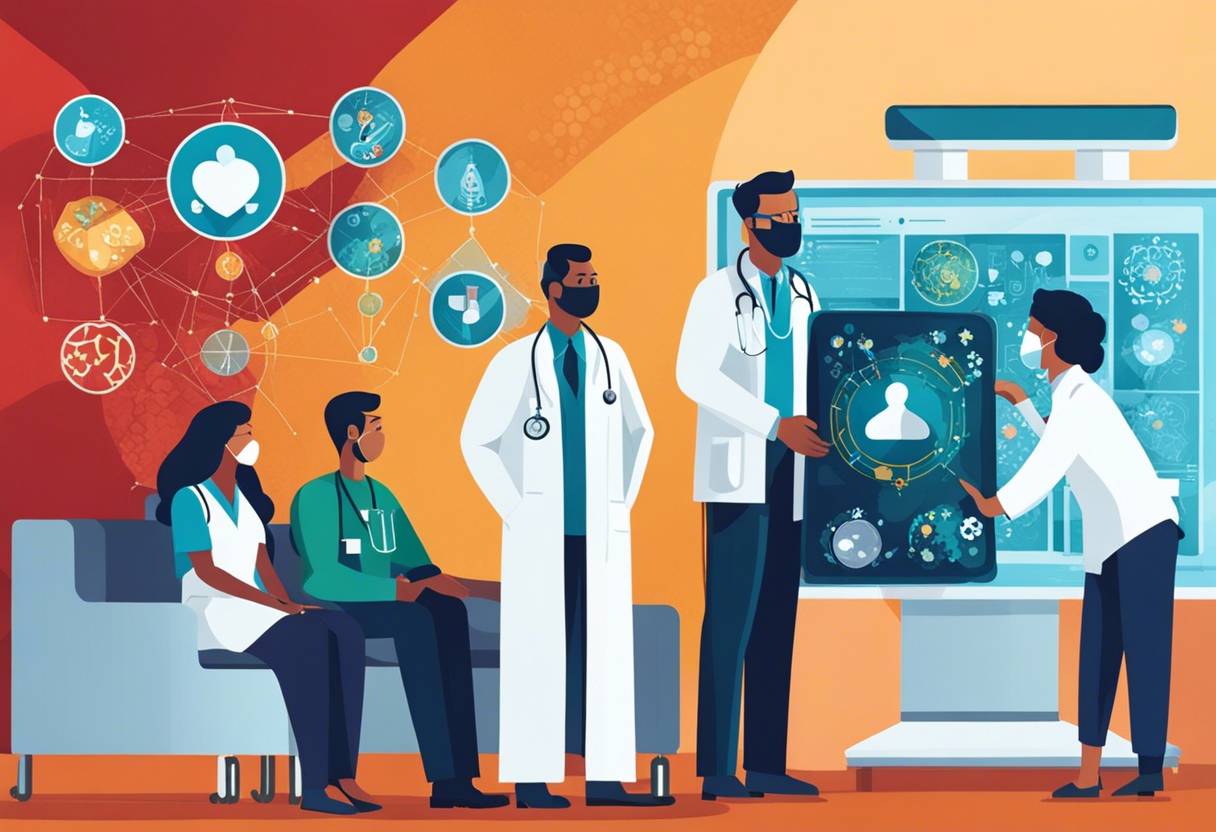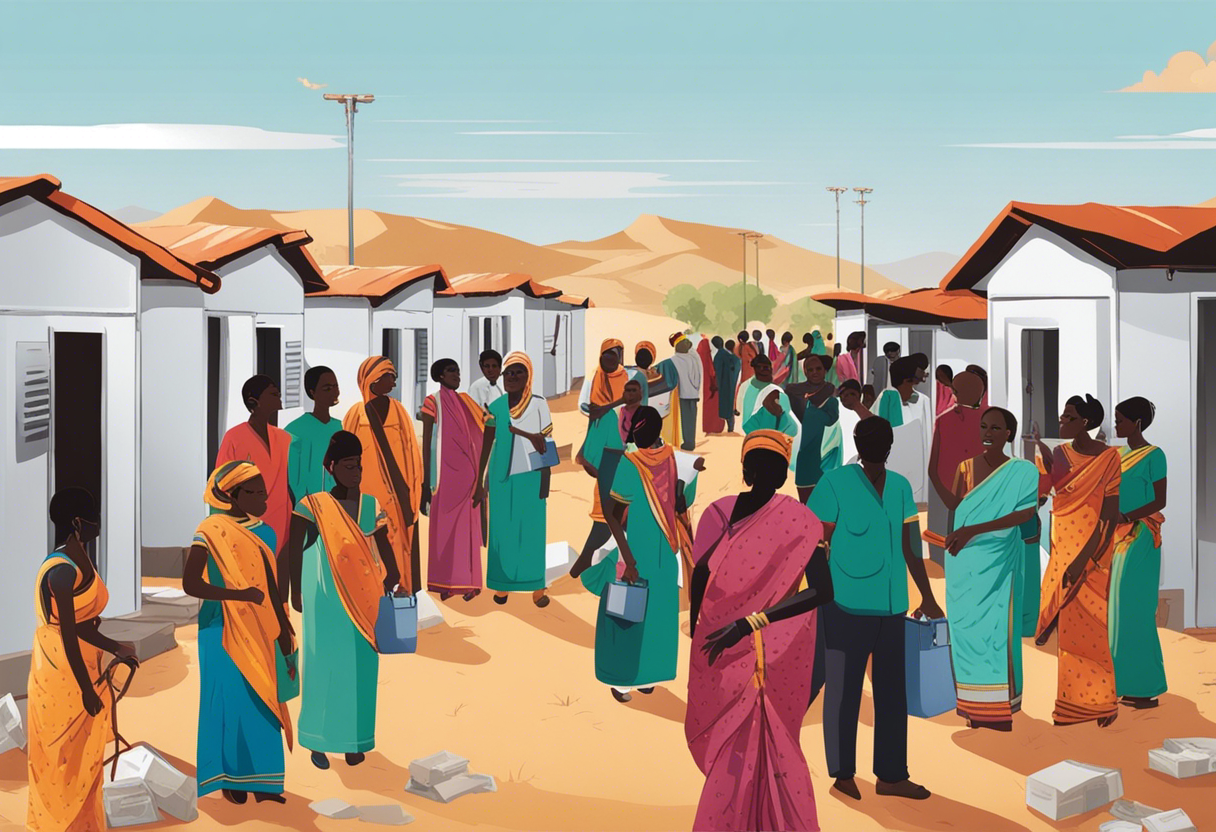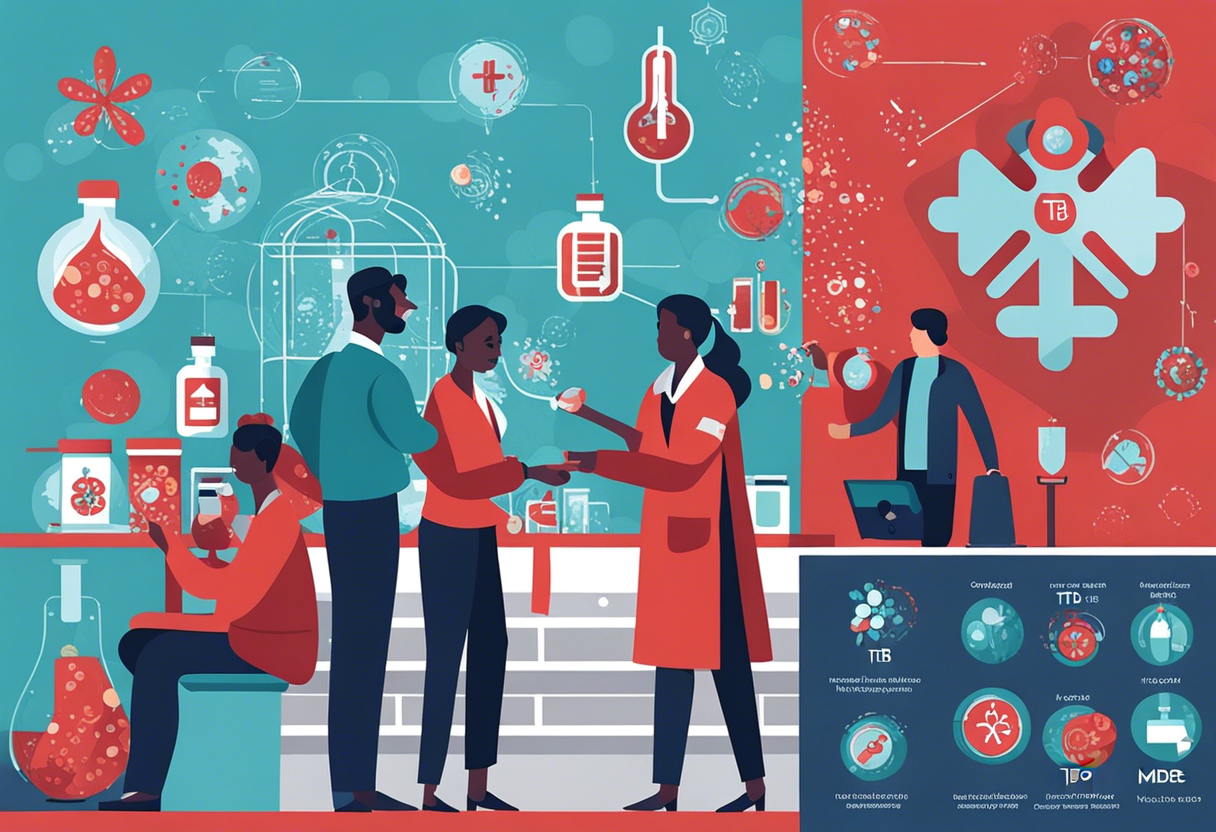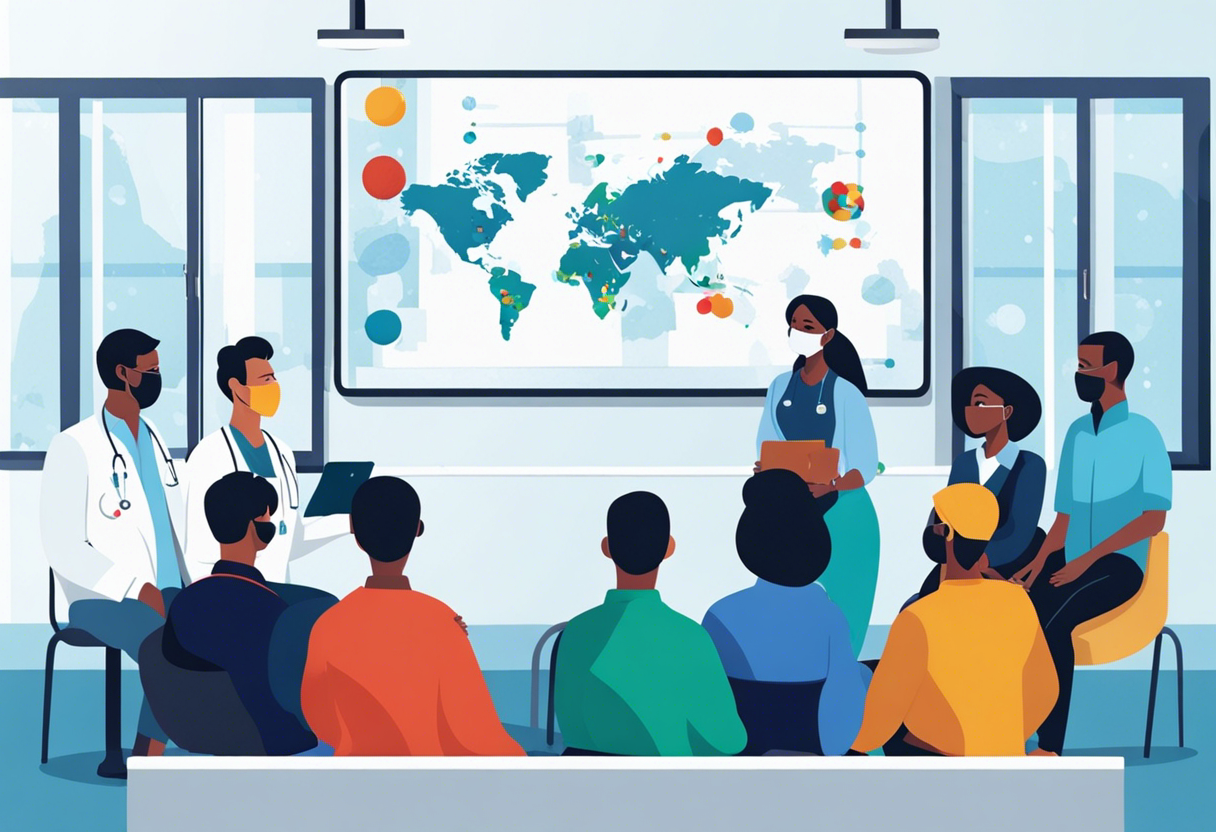Top Five Strategies: Winning the Battle Against Tuberculosis
A successful fight against Tuberculosis (TB) starts with raising awareness of the disease by fostering a broad-based advocacy. Governments, NGOs, and other stakeholders play a key role in identifying, educating, encouraging testing, and taking active measures towards addressing this global health issue.
Involving the community is essential in this fight. A sense of collective responsibility is necessary to encourage early diagnoses and to ensure that those with the disease have regular access to treatment. Community health workers, local volunteers, faith groups, and educational institutions can play a crucial role in spreading the message and actively finding and helping those who are suffering.
It's also important to inform and eradicating the stigma associated with TB. Accurate, empathetic information dissemination campaigns can humanize the disease, making it less fearful, and turn community members into allies of those living with it.
Strengthening Health Care Systems

Central to combating Tuberculosis is the development and improvement of healthcare systems. Investing in strategies to enhance health sector capacity can ensure efficient and effective TB diagnosis and treatment.
Improving primary healthcare services, expanding staff training initiatives, incorporating advanced technologies for efficient TB detection, and better management protocols are fundamental to mitigating the TB crisis. Additionally, research programs should be fostered, aimed at evolving diagnostic methodologies and creating more effective anti-TB drugs.
Ensuring Accessibility and Affordability of Treatment

A critical strategy towards winning the TB battle is guaranteeing that all patients have widespread access to low-cost or free TB treatment and medication. Robust public-private partnerships can be instrumental in creating this accessibility. Governments, NGOs, and private sector firms can work together to subsidize or deliver free-of-cost medicines and medical services.
Moreover, supporting programs or methods that facilitate easy availability of medicines for people living in remote or underprivileged areas is crucial. Mobile TB clinics, telemedicine services, or community-led outreach initiatives can be beneficial.
Multi-Drug Resistant Tuberculosis and the Need for Research

Multi-Drug Resistant Tuberculosis (MDR-TB) is a deadly variant of TB that resists most frontline drugs. The emergence of MDR-TB poses a significant challenge in the fight against TB. Hence, focus should be on enhancing research and innovation to discover newer drugs and treatments that can counter MDR-TB more effectively.
Furthermore, this research should be accompanied by efforts to educate the community about MDR-TB, its risks, and the importance of correct and complete treatment to prevent its spread.
Directly Observed Therapy (DOT

The Directly Observed Therapy (DOT) strategy is a patient-centered approach to treatment, where healthcare providers or designated individuals observe patients as they take their TB medicines. This method has shown to be effective for TB control, especially in situations where adherence to treatment may be difficult due to external factors.
The DOT strategy helps to ensure that TB patients complete their prescribed therapy regimen, reducing the likelihood of drug-resistance and promoting better health outcomes. Many government health institutions around the world have adopted this approach, highlighting its importance in the fight against TB. Implementing and improving on the DOT strategy is another significant step towards eradicating TB.